Connect
Use this guide to configure Zscaler to send web logs to Zluri using Cloud NSS and an S3 bucket.
Prerequisites
- Admin access to Zscaler
- Zscaler API key
Step 1: Connect Zscaler in Zluri
1. Go to Source → Integrations → Browse Catalog, search for Zscaler, and click Connect Integration.
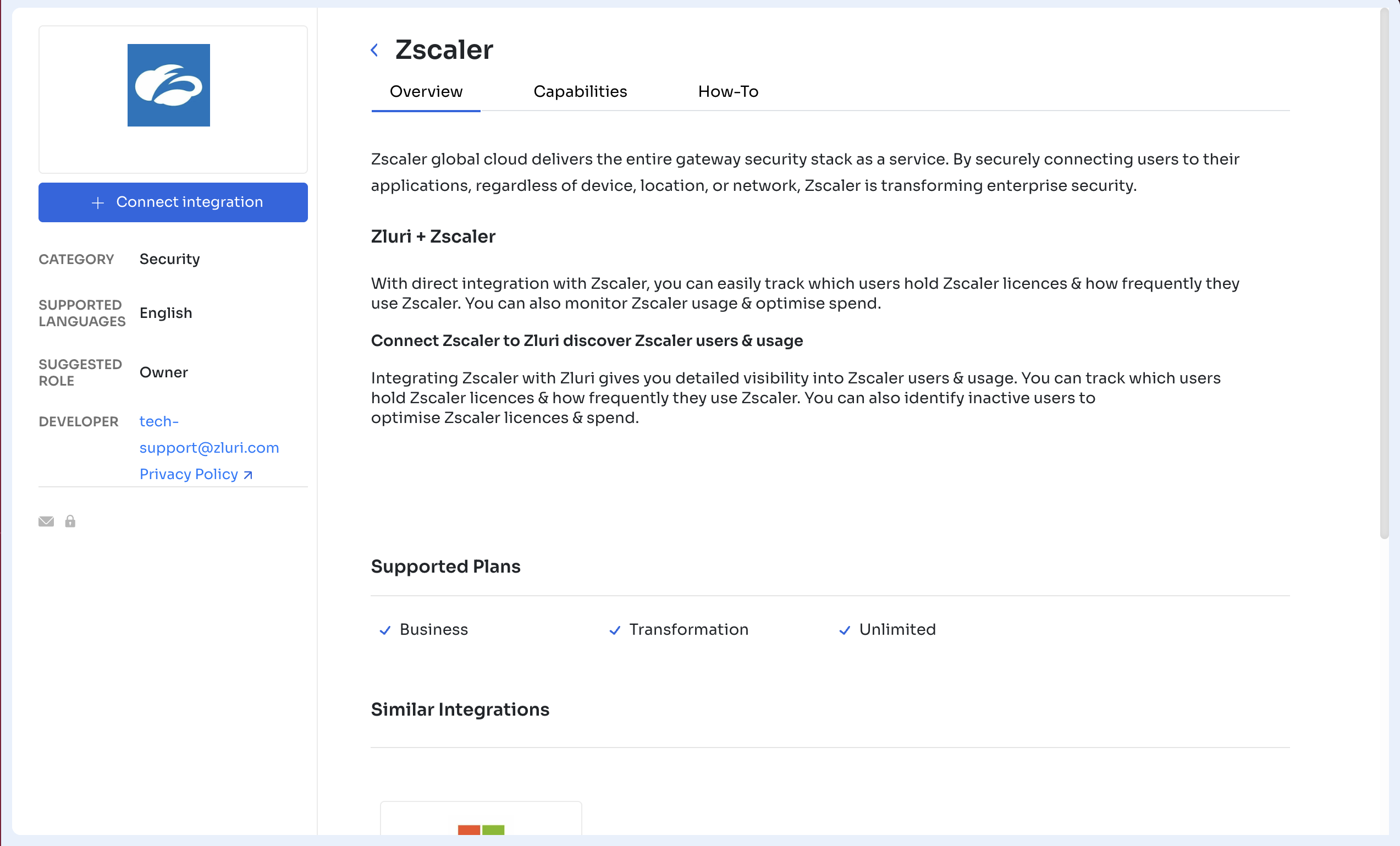
2. In the scope selection screen, add the optional scope:
- Read NSS Logstream Logs - for NSS Logs Ingestion
- Read users - For Users fetching
The scopes are not selected by default and must be added manually to enable log ingestion or to fetch users data.
Click Continue.
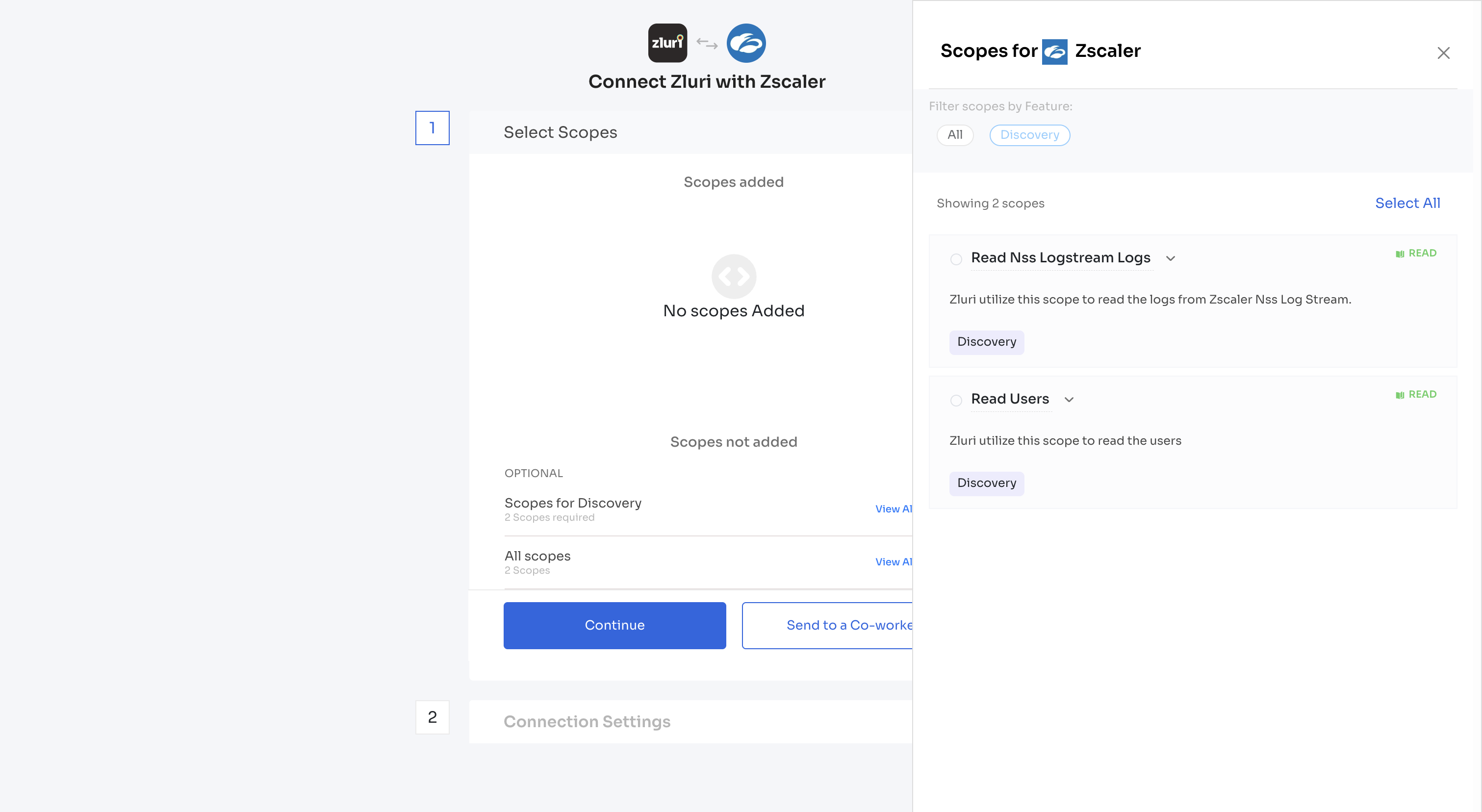
3. Log in using Zscaler credentials:
- API Key: Go to
Administration → Cloud Service API Key Securityin Zscaler - Username and Password: Use the same credentials used to log into Zscaler
- Subdomain: Use the organization's Zscaler cloud name (e.g.,
zscaler.net,zscalerthree.net)
4. Enter the Bucket Name (shared by Zluri Support).
The "Bucket Name" becomes mandatory when theRead NSS Logstream Logsscope is selected.
The "API Key + Username Password + Subdomain" becomes mandatory when theRead Usersscope is selected.
All form fields becomes mandatory when both scopes are selected.If the scope is enabled but the bucket name is missing, the integration will fail.
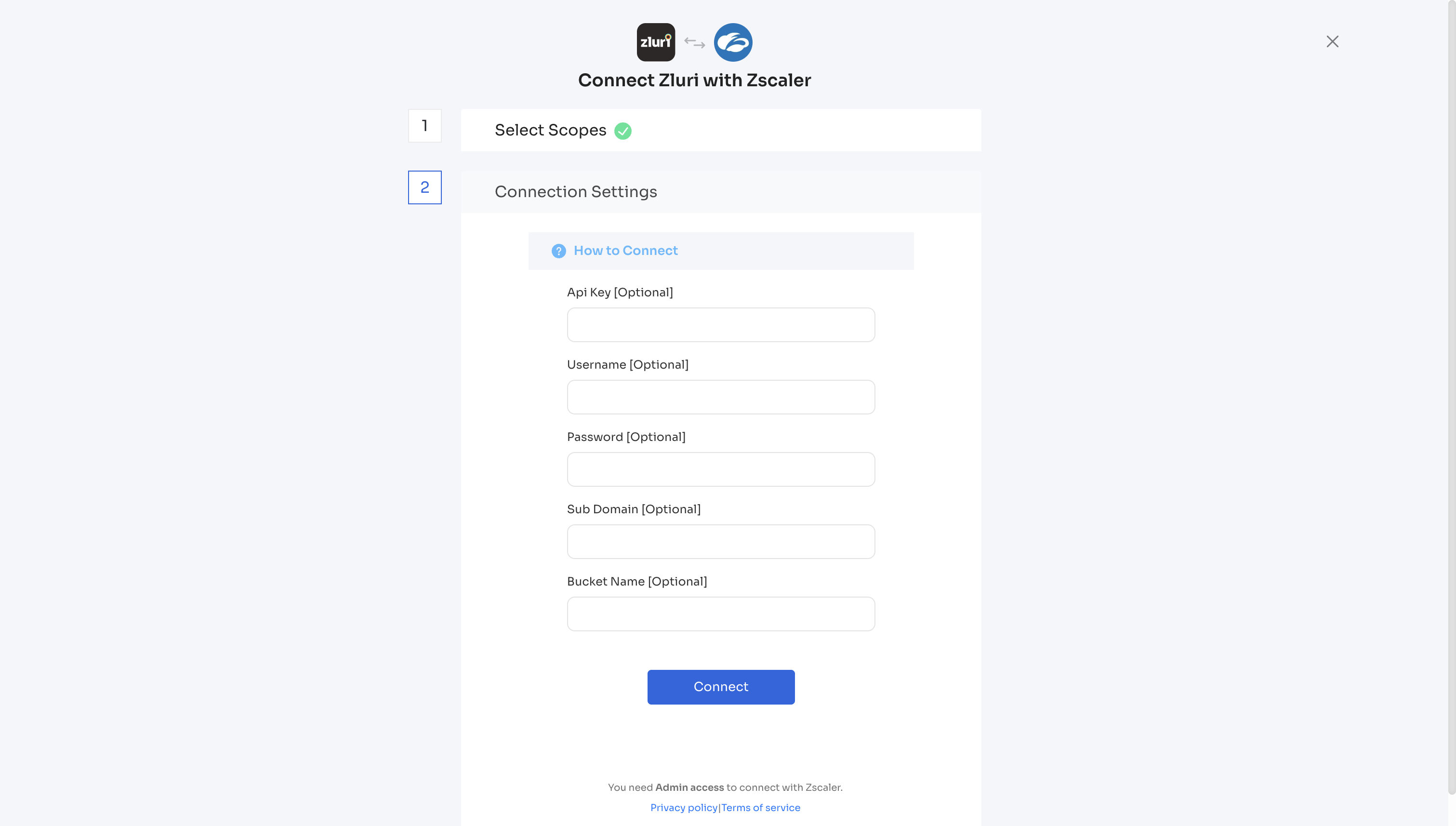
5. Click Connect.
Step 2: Configure NSS Feed in Zscaler
1. In Zscaler, go to Administration → Nanolog Streaming Service (NSS) and click Add NSS Feed.
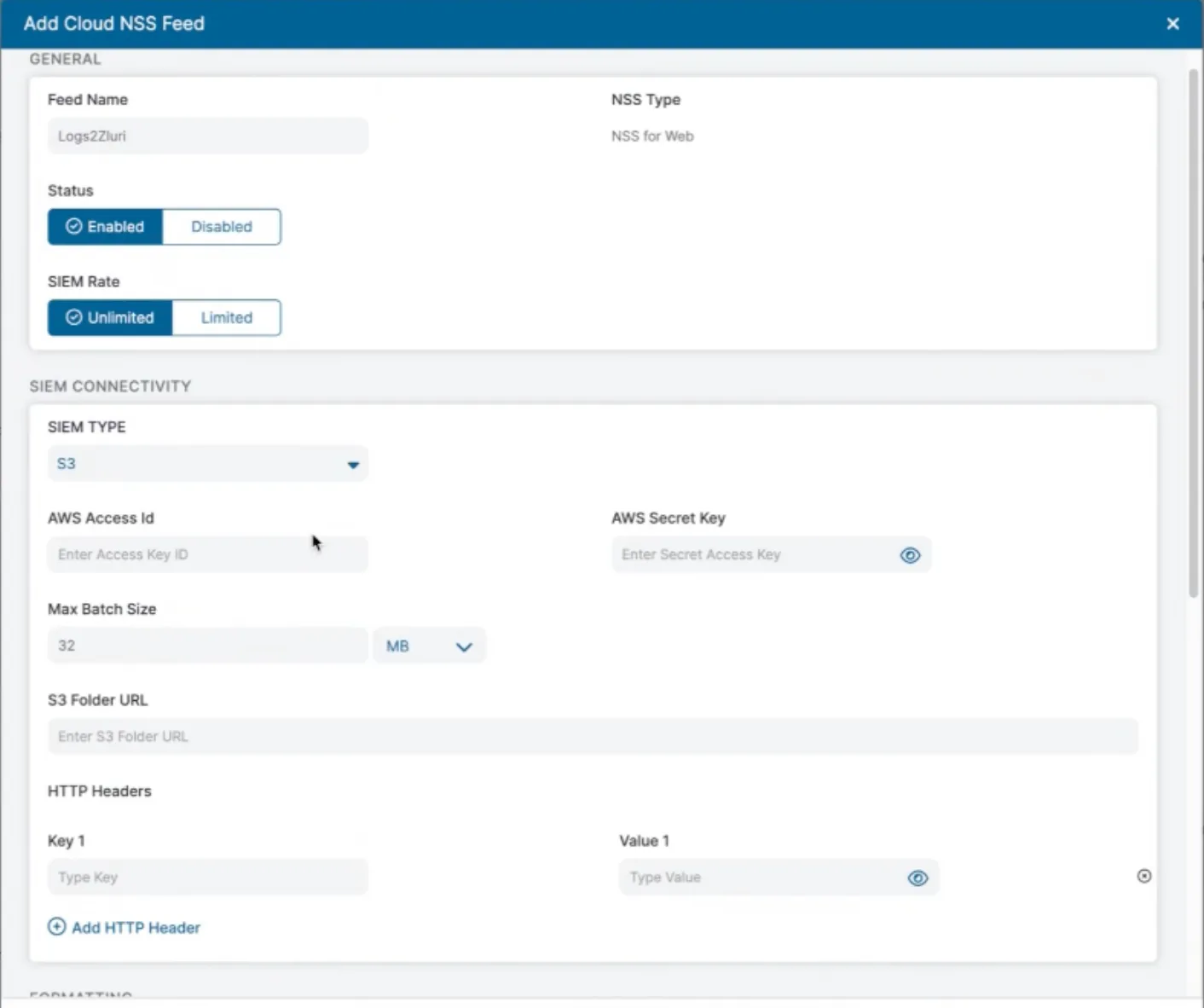
2. Fill in General:
- Feed Name (e.g.,
LogsZluri) - NSS Type: NSS for Web
- Status: Enabled
- SIEM Rate: Unlimited
3. Under SIEM Connectivity, select S3 and enter:
- AWS Access Key (ID) and AWS Secret Access Key (shared by Zluri)
- S3 Folder URL in the following format:
https://{bucket-name}//{orgId}/{integrationId}/{orgintegrationId}
Use the exact path shared by Zluri after integration.
Step 3: Format the Feed
Configure the formatting section:
- Log Type:
Web Logs - Feed Output Type:
JSON - Enable JSON Array Notation
- Keep the Feed Output Format line
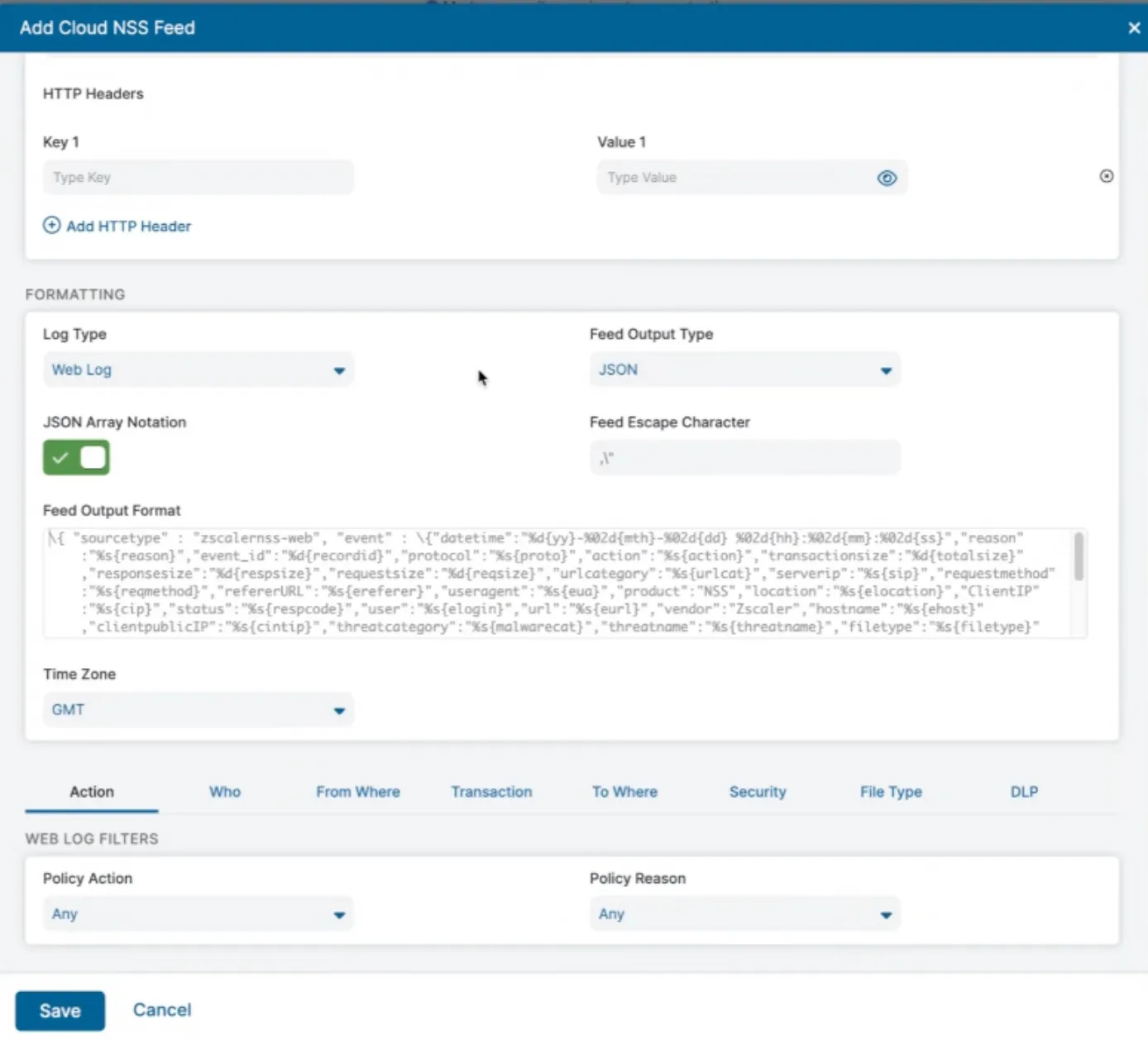
Step 4: Finalise the Setup
1. Click Test Connectivity. A 200 OK message confirms success.
2. Set the preferred log push frequency (e.g., hourly or daily).
3. Click Save to complete the feed setup.
Final Notes
- Please reach out to Zluri Support to get:
- S3 credentials (access key & secret)
- Org-specific S3 folder path
- Ensure exact formatting and scope alignment to avoid setup issues
Updated 7 days ago
